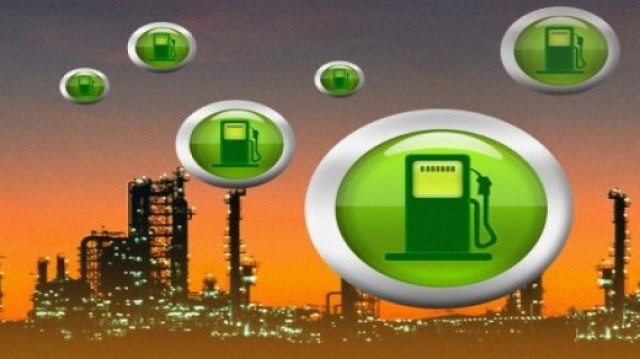A massive hike
In raising petroleum prices, the government has delivered a death blow to most middle-income people of this country.
In raising petroleum prices by just under Rs6 per litre, the government has delivered what many will see as a death blow to most middle-income people of this country. The rise in prices – at over nine per cent – has been justified by the government on the grounds that prices in the international market for Arabian Light Sweet crude, the benchmark used by the Oil and Gas Regulatory Authority (Ogra) have risen by almost seven per cent in the past month alone. However, that logic will provide little solace to ordinary Pakistanis who will see the substantial price jump further erode their purchasing power, by increasing the size of their monthly expenditure on fuel. In addition to this, the increase in the price of fuel will add to inflationary pressures in the economy, significantly pushing up the cost of production since petroleum products are used as fuel in factories. Not only this, a hike in the price of petrol and in particular diesel, by increasing transport costs pushes up prices of commodities across the board, especially at the retail level. Furthermore, pressure builds up on owners of public transport vehicles to raise fares, and this too disproportionately hurts low and middle-income people.
Ogra’s increase may make sense from the point of view of economics, in that most of our oil is imported and hence the price of sale to domestic consumers is inextricably linked to international prices. That does not, however, explain why the government has often been so reluctant to pass the benefit of falling oil prices to local consumers in the form of reduced prices. That has rarely happened and even when it has, the reduction has been nominal. Those who understand the pricing logic know that this is done in large part because the government ends up with several billion rupees every year through the petroleum development levy. This means that when the price of oil falls internationally and local prices are not reduced, or are reduced only nominally, the government stands to make a windfall — at the expense of consumers. It is precisely because of this that Ogra’s reason for increasing the price of petrol in such a substantial measure is treated with scepticism — perhaps even a hint of disdain – by ordinary people.
Published in The Express Tribune, November 2nd, 2010.














COMMENTS
Comments are moderated and generally will be posted if they are on-topic and not abusive.
For more information, please see our Comments FAQ